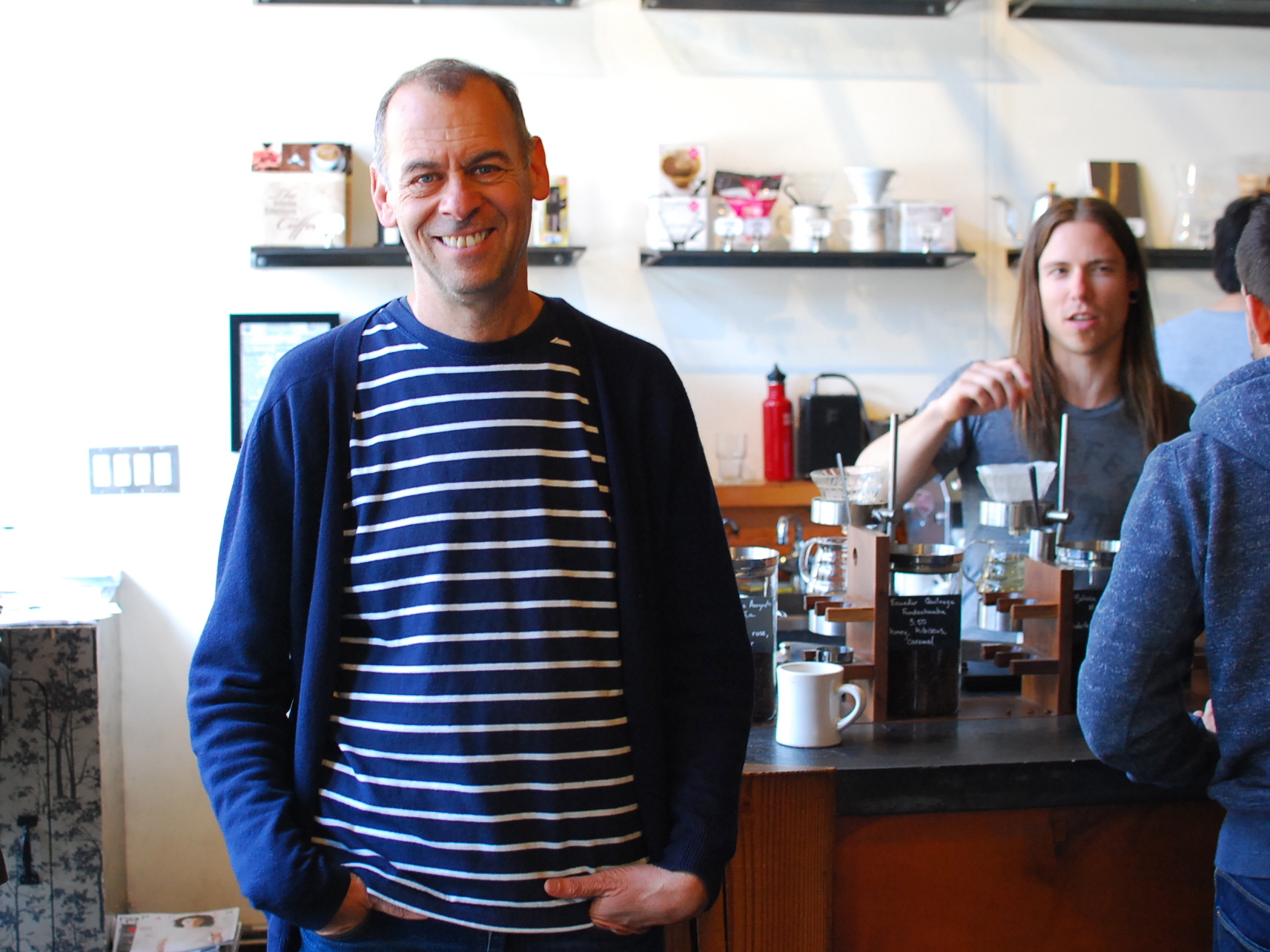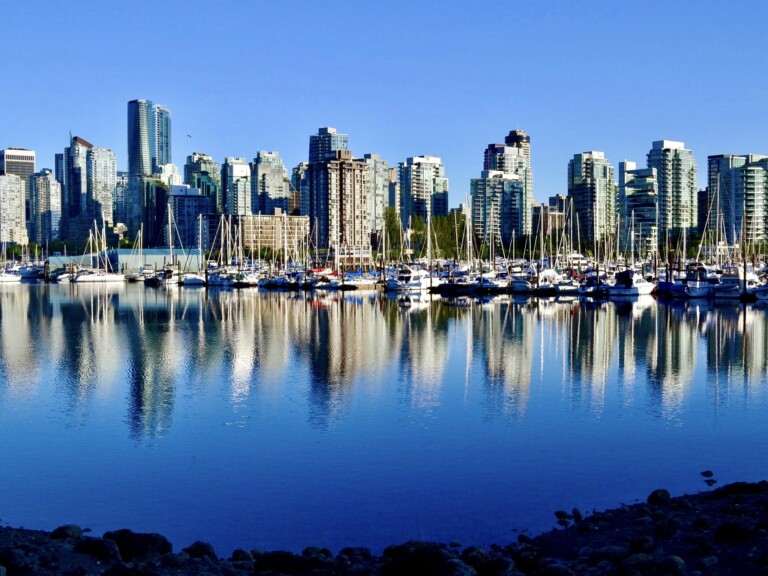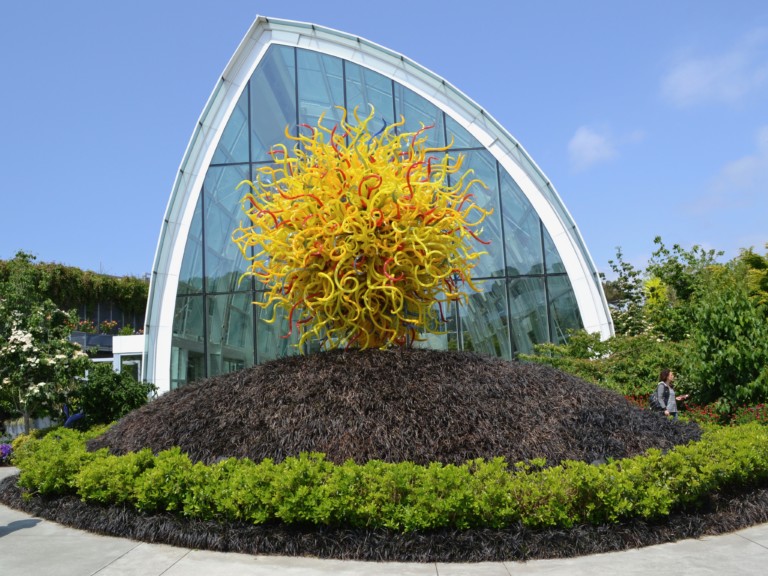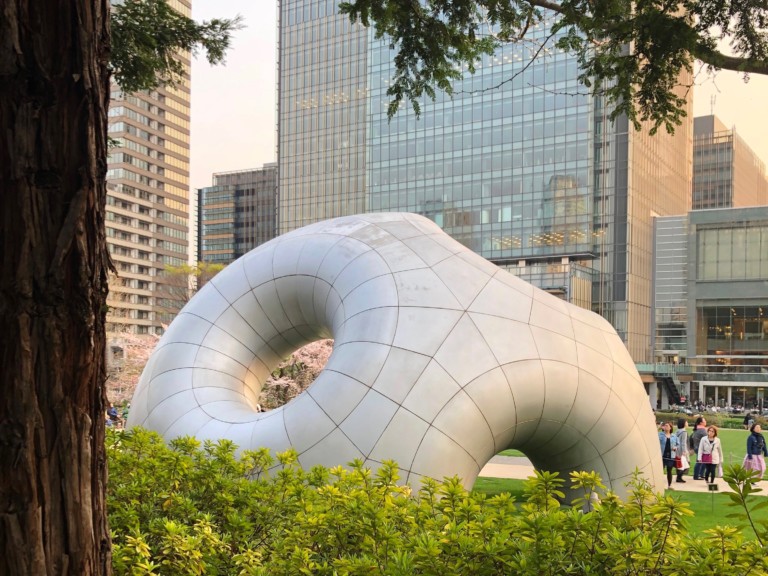INTERVIEW CONTINUED FROM PREVIOUS PAGE
How important do you think it is at this point to have a physical coffee bar at this point if you’re a coffee roaster?
It depends who you talk to. I think it’s important because as a roaster it’s really important. Most roasters have a way they want to prepare their coffee and turn them on to it. In the wholesale business, it’s hard to necessarily get that flavor. It’s optimized for how you want to prepare your coffees. People can say, “This is how we experienced our coffee, and this is how we want to express it.” Some of the wholesale accounts are really doing magnificent work. There are some really dynamic – not just wholesale accounts, but independent coffee bars – people that aren’t as involved. They think that all you need are beans from a “third wave” roastery and the right equipment, but there’s a lot more to it. There’s an investment, and sometimes I’ll see some restaurants just want to serve espresso. It’s a lot of involvement. Even to have a good pourover program is not as complex, but to do it right takes a certain involvement, getting the right ingredients, portions, water, and somebody paying attention to the brewing. Anyone that’s prepared pourover knows that it’s not a slam dunk deal. Sometimes restaurant people – my background is food – there’s a lot of turnover. It’s all new restaurant people…There are restaurants doing a good job, and there are examples, but more often than not, the great restaurants are falling short. The owners aren’t invested, but there is hope. Future chefs, this is where they stop. The younger chefs, they come to Four Barrel, or they go to Sight Glass, or Stumptown or Intelligentsia or Verve. They go to these places. They’ll want to have the coffee quality on the same level as their food. Good things will happen at restaurants.
What’s your favorite aspect of operating a coffee roasting company?
Well, I don’t do that anymore. That’s been three years, but my favorite thing, and why I’m in the business, is turning people on to flavors and experiences. And coffee happened to be it. Coffee, espresso. It might have been cheese, or beer, or wine, but in 1993 I felt Sonoma County should have a really great place to taste espresso. I went about it in a different way. I got into a café that served Vivace espresso, but also had a café menu as well. Going back to your question, if I can find a flavor that I’m excited about, for me, part of digging deeper is working with farmers, thinking about that flavor, thinking about the sweetness that’s inherent, the complexity and acidity and all these qualities. What I like in the coffee, probably a lot of people like, and then you accept that some people don’t. You can’t be everything to everyone. Four Barrel’s a great example. They don’t have non-fat milk. They have a very limited menu. They don’t have chai. Some people probably go, “This isn’t what a coffee bar should be,” but Jeremy has the conviction to say, “Let’s do something that we really love to do.” This is one model, but look at the lines.
Or a place like Una Pizza Napoletana. [Anthony Mangieri] is wonderful. He’s created an experience. He doesn’t have desserts. He doesn’t have salads. He doesn’t have soups. Just pizza, and for a lot of people that go in there, they say, “This is too minimalistic.” They only have one pizza with meat on it, and that’s on the weekends. And they go, “This is strange.” It’s not enough to be everything to everyone, but he has an experience that he’s created that’s unique and it’s authentic. And that’s one version.
I think we’re going to see more coffee bars less focused on being maybe the Starbucks or Peet’s model, where you have all these different things to engage the consumer. At Starbucks, they need to have sandwiches. Now they’re thinking about other aspects of the market. “We need to have a blonde roast. We need to have to be this. We need to be that.” I think there are different models that work. Not to be too Four Barrel-centric, but Jeremy’s doing another project that’s not going to be Four Barrel, but it will have Four Barrel roasted coffee. It will be Four Barrel with toast with really great jam and butter and honey. They’re going to have their own pies. That’s another take on how to present coffee. Coffee in a lot of ways, we’ve ghetto-ized ourselves. This is a place that’s doing a nicer job with the pastries. James Freeman at Blue Bottle, in one of his interviews, he did a coffee symposium with Doug Zell and Andrea Illy, and James was talking about the perfunctory scone…A lot of the coffee bars you go into, the pastries are very middle of the road. The price decision for putting that product in that coffee bar is, “Let’s get something that’s affordable,” because it’s really expensive to buy pastries and put that in your coffee bar. Say some of our colleagues – and I’m not naming names – have raised the coffee experience, but the other part isn’t quite there. We’re starting to see coffee people put all these different elements together. In some ways, the coffee bar in America is ghetto-ized. It’s separated out. We don’t serve alcohol in a coffee bar. You rarely see alcohol in coffee. Like an espresso bar in Italy, it’s pretty good. You can get a pretty tasty panini, and there’s alcohol. In America, it’s been separated out. I think we’ll see a greater confluence. That’s one reason. I think coffee’s been ghetto-ized. Other aspects of the food industry look at crappy pastries and some of the food that’s just really mediocre and they don’t take it as seriously.
Walk me through a typical coffee consumption day for you. What would that be like, from the moment you wake up to the moment you go to bed?
Interesting. For 15 years, I’ve had access to an espresso machine every day, so I would rush to work and before I’d start roasting, I’d have a Marzoccco, and I’d pull shots of espresso and taste it until it was right, until it was dialed in. I’d have a macchiato or a shot, just to get a taste. I like little tastes. And then when I’m cupping, I’m spitting. I’m not drinking a lot. I’m drinking for the flavor, more like someone who’s maybe in the wine industry or the spirits industry. If you drank all the wines, you’d get tanked. But I love to go visit all the different coffee bars in the city…So probably during the day I’ll have two to three espressos.
If you could only have one shot of espresso, who would pull it for you?
That’s an awesome question. Klaus Thomsen.
How come?
I think that he’s a master barista, and he’s such a lovable personality that he just exudes enthusiasm. He’s a great craftsman, and he’s everything you’d want in someone to serve you a cup of coffee. He’s a perfect ambassador, but I’d say there are many people that do an awesome job.
My list of great baristas that I love is endless. I mean Tim Wendelboe, Gwilym Davies is a fantastic barista, Billy Wilson, the crew here is amazing, Sean and Justin [Teisl], Dan Griffin, Umberto is a fantastic barista. Chris Tacy, who I just had shots with this morning, is a great barista. Some of my other favorites would be Bronwen Serna, who’s an incredible barista. Nick Griffith is fantastic…Also, James Hoffmann is one of the really fantastic baristas. I’ve had really great coffee that James has prepared.









Leave a Comment